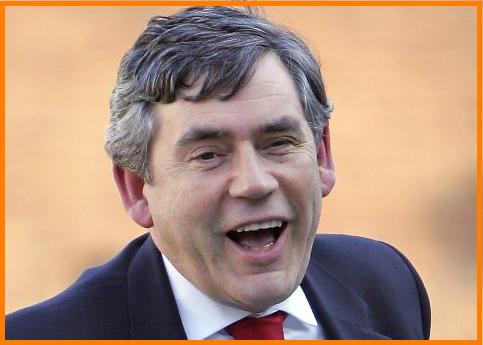But what if he’s right?

Could he have the winning formula after all?
The largely settled view of commentators and punters alike is that Labour will lose the next general election. No pundit has predicted that Labour (still less Brown) will be running government after polling day for some time, and the betting markets make the Conservatives heavily odds-on to win an outright majority, never mind most seats. Labour’s implied percentage chances of keeping a majority are stuck in single figures.
However, a slim chance is not no chance and longer-priced bets have come in before. Let’s think then about what could bring about a Labour victory – and what would happen after it. Let’s also set aside the possibility of Labour replacing Brown: they’ve had their chance and demonstrated that they wouldn’t want to take it even if they could. Once parliament sits again after the recess, there’ll be scant to no opportunity to replace him.
Brown’s strategy seems clear. Indeed, Daniel Finkelstein in yesterday’s Times suggests with some justification that it’s been there to see since the early 1990s. The gist of it is that we will hear a lot more of ‘10% Tory cuts’ because that’s the current equivalent of what worked for Major’s Conservatives and Clinton’s campaign in 1992.
Could he be right? Hope and fear drive electoral politics like little else and of the two, fear is usually the stronger. There are a lot of people who stand to lose from government spending cuts: pensioners, public-sector workers, parents of school-age or pre-school children to name just a few of the more obvious. There are a lot of votes to be won.
For Labour to do so means they’ll have to win the trust argument, not necessarily with the electorate at large but with the 36% that could deliver them victory. That sector which might vote Labour need to believe (a) that the Tories really would hurt their livelihoods and (b) that Labour wouldn’t. Given their different prognoses for the economy made by the two parties, there is perhaps a window of opportunity to do so. In many cases, it will not be the Conservatives from whom Labour needs to win voters back; it’s people who’ve abstained since 1997 or voted for minor parties. Even if the hope of 1997 is no longer there, fear might serve sufficiently.
It is unlikely: the strategy clearly isn’t working for Labour at the moment, as they trail far behind the Conservatives. If it is to work, it will only be a long, attritional campaign that will do it, one which the public hasn’t bought in to so far. Unlikely but not impossible. Other ‘events’ could intervene too: the expenses scandal has made little impact on the relative Tory/Labour position but it’s not inconceivable that something else might. Nothing of significance has turned up of that nature in the last four years but you never know.
What happens then? If Brown does win, his self-confidence will soar, as will his support in his party. The cabinet will be reshuffled and in his much stronger position, that could well mean Balls to the Treasury as well as a much more Brownite complexion in general.
Political debts, especially to the unions and their members, will also have to be paid and promises kept – and that, I think, means that he is sincere when he says that he won’t cut public spending. He knows he won’t have a choice. In fact, I’d go further: I don’t think he’d cut front-line spending, excluding interest repayments and benefits. Where that would lead is open to debate – though Mervyn King wouldn’t be happy.
As I say, none of that’s likely. The Conservatives are in strong positions in all the polling data and in real elections but then so was Labour in 1991. It’s true that John Major’s personal ratings were better then than Gordon Brown’s are now but then the Tories also needed many more votes to be reelected than Labour will. That the Conservatives are no better than 2/5 to gain an overall majority (something that requires gains on a scale not made by the Tory party since the unusual circumstances of 1931) tells its own story. Even so, it’s always worth looking at what’s not likely: after all, that’s where the juicy odds tend to be.